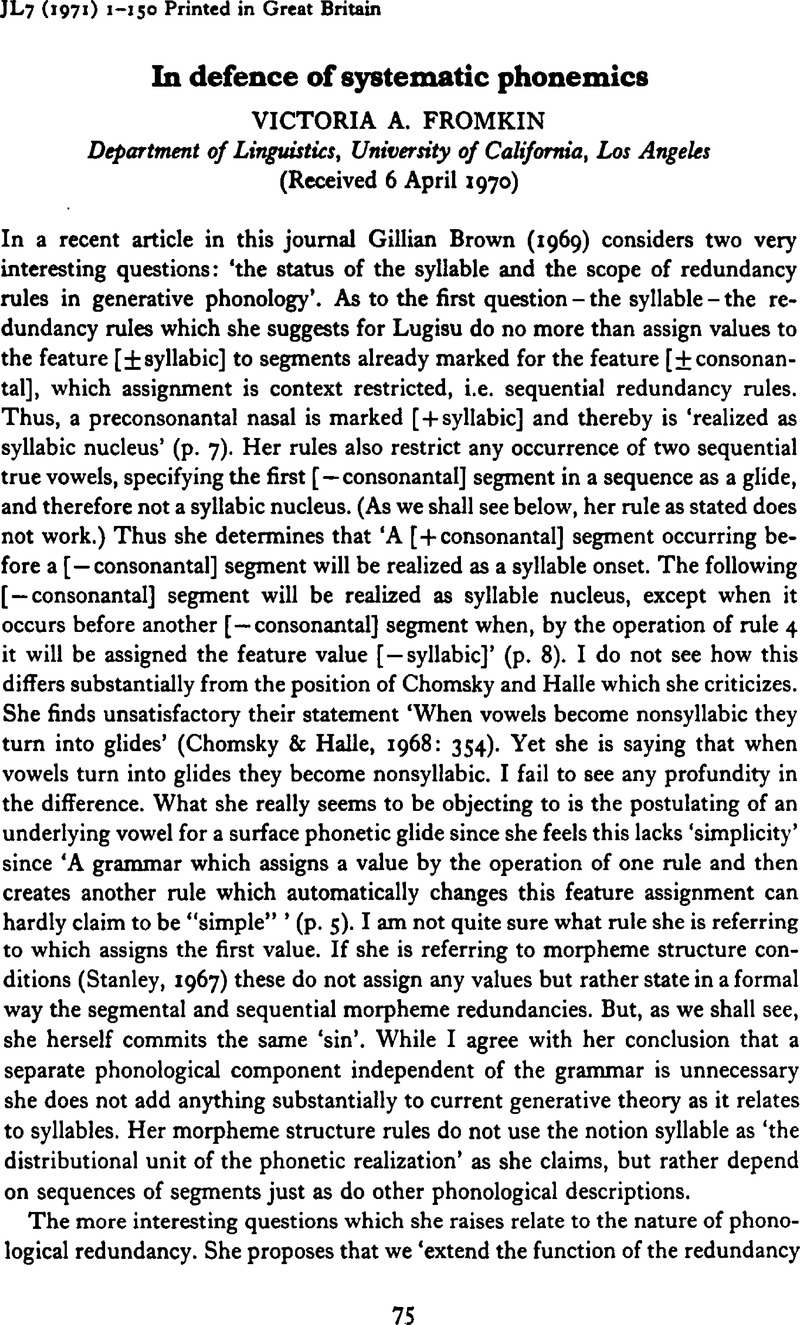Crossref Citations
This article has been cited by the following publications. This list is generated based on data provided by Crossref.
Devine, A. M.
and
Stephens, Laurence
1974.
Phonological rules and structural constraints.
Paper in Linguistics,
Vol. 7,
Issue. 1-2,
p.
51.



